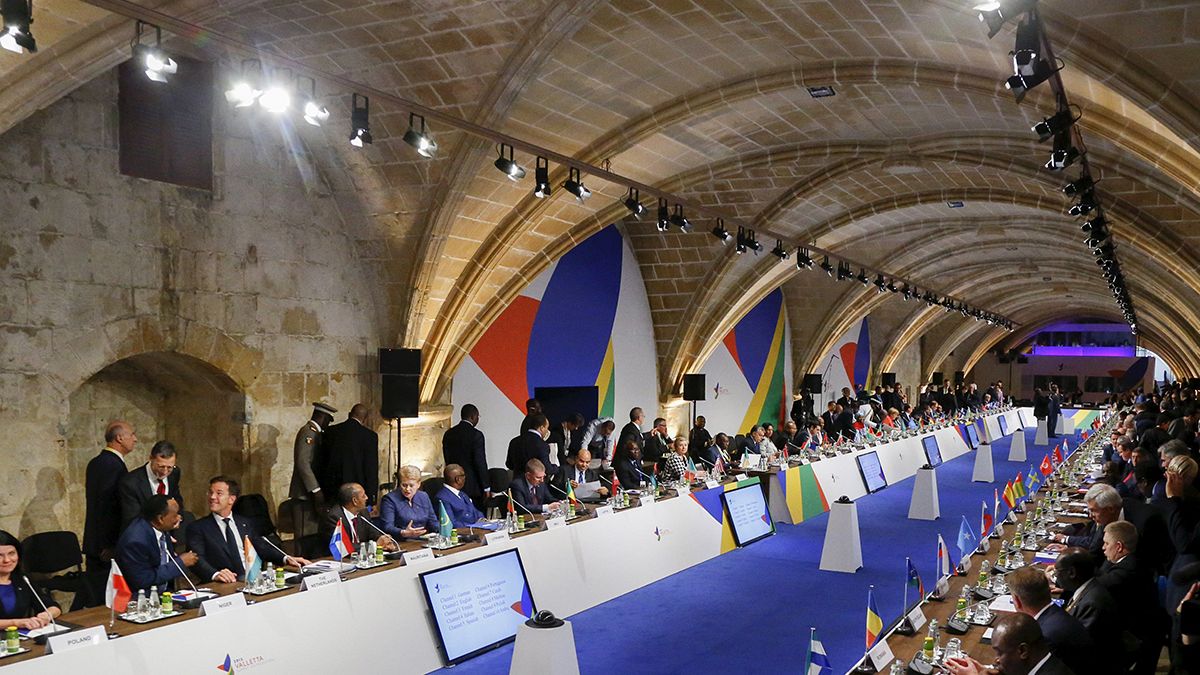The EU's Commissioner for Migration and Home Affairs speaks to euronews about the migration and refugee crisis, and how the Valetta summit with Africa can change things.
While many people are escaping conflict in Syria and the Middle East, a major proportion of migrants coming to Europe is from Africa. That is why EU leaders and policymakers are holding a summit on Wednesday and Thursday with some 30 African nations in Malta.
Expectations are high but many experts stress that despite the billions of euros that Europe is ready to inject into particular projects in Africa, there are many factors showing that tackling the root causes of migration there will be a huge challenge.
Europe is still struggling to find an effective response to the refugee crisis, the greatest challenge for the European Union in its history.
However, with the rise of far right parties in many member states, it is still very unclear if the EU is capable of implementing lasting and common asylum reforms. At the heart of the crisis management is the EU Commissioner for Migration and Home Affairs, Mr Dimitris Avramopoulos.
Efi Koutsokosta, euronews:
“Commissioner, now we have a summit, Wednesday and Thursday in Valletta, the Maltese capital. What are your expectations for this summit?”
Dimitris Avramopoulos:
“First of all, to share a common understanding of the situation, as far as the refugee crisis is concerned, and the migration problem. The African countries must understand that as long as our aid in development terms is continuing, at the same time we need their support and their help in order to manage the migration problem.
They have to accept returns to their countries, and of course to work together in order to create legal ways for the ones who want to come to Europe. By the way, I want to make an announcement today: during the first two months of next year, the commission is going to present, they are working very hard with my people, a full, comprehensive proposal for legal migration. One thing is for sure, let me be clear on this: Europe will need migrants in the future.”
euronews:
“We know that some 147 people have been relocated in the less than two months of the relocation scheme and quota system. Isn’t this a very small number? Are you sure that it is still realistic to target the relocation of 160,000 people over the next two years?”
Dimitris Avramopoulos:
“There is little doubt that the numbers are very, very small. but it was just the beginning. As you know, we had the very first relocation operation from Italy, one month ago, and from Athens two weeks ago. It is, I would say, like a start-up. We have a long way to run in order to say that we are satisfied. I believe that as long as we move ahead, and from the moment that all member states decide to be part of this relocation scheme and project, things will be better.”
euronews:
“But many of them are not responding!”
Dimitris Avramopoulos:
“Only 12 countries so far have accepted to be part of it. So, things have started changing: the climate is more positive and I believe at the end everyone will accept to have refugees relocated in their countries.”
euronews:
“Is this number realistic,160,000 people? Over the next two years?
Dimitris Avramopoulos:
“It can become so. It can become, but as I said, we didn’t start well. and I said it, I was very open, that I was not happy with the first numbers, but the system, the program must start functioning.”
euronews:
“Let’s go now to the other ambitious plan of the commission, which are the hotspots which could help manage the huge flow of migrants and refugees. Many people in the field, especially in the Greek islands, say that this hotspot idea doesn’t work, at least for now. So is Greece prepared to look after all these refugees over the winter, because winter is coming?”
Dimitris Avramopoulos:
“The relocations cannot work without the hotspots, so it’s good to know that the hotspots in Lesbos, in many other parts of Europe are there to assess all cases – and not keep people on the island more than 24 hours. Then they will be transfered to the mainland and from there to the other member states.”
euronews:
“So you say that Greece will be prepared by the end of the month with all these procedures?
Dimitris Avramopoulos:
“It’s a commitment, and believe me, during the last two months, I’m in the position to know, things are moving faster in Greece!”
euronews:
“Are you optimistic for the outcome of the Valletta summit?”
Dimitris Avramopoulos:
“You have to be optimistic in these kinds of matters! It’s a unique opportunity right now to talk frankly! Let’s hope it will not be one more summit where everybody talks and then they go back home without having done anything!”


